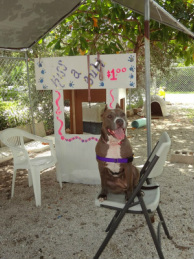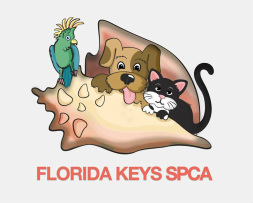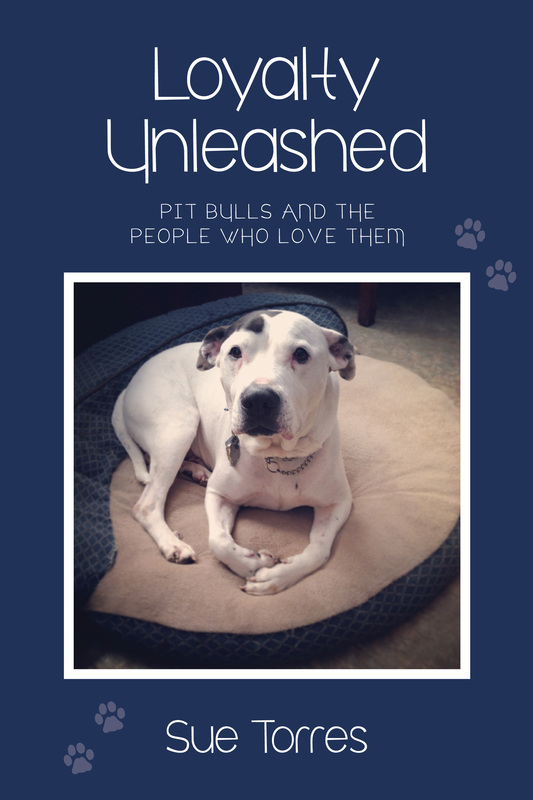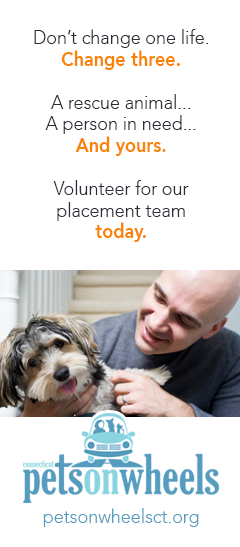A while back I asked fans how we might improve our shelter system. While I have not visited a huge number of shelters personally, the things I have seen and heard about a lot of the animal shelters around the country suggest that a major overhaul of the entire system is needed in many areas.
This will be the first of several blog posts on how our shelters might be improved and some of the places that have it right - and what better place to start than beautiful Key West. While this post will deal mostly with dogs, please note that there are many wonderful cats and small animals available for adoption as well.
The Florida Keys SPCA shelter is a true shelter in every sense of the word. The animals are well cared for and are able to stay indefinitely. The dogs are socialized and given the tools they need to help them get adopted. They are matched with other dogs of similar energy levels and allowed to play together outside at various times during the day. They get lots of human contact and exercise.

Things got even better when I took a look at the shelter website. Right at the top of the page there was a blurb “The Florida Keys SPCA frequently has pit bulls and pit bull mixes available for adoption.
To learn more about this often misunderstood breed, click here.”
Reading all of this prompted me to email the Executive Director of the FKSPCA, Tammy Fox-Royer, who was kind enough to answer some questions about the shelter.
The shelter has eleven paid staff and about 50 volunteers. Animal Control Officers go through a 40 hour certification with the state of Florida. Animal Care Associates receive on the job training through the Director of Operations and mentor staff. Clinic staff train in the clinic with the Veterinarian and current clinic staff. Compassion for people and animals and providing exceptional customer service are requirements for all paid and unpaid staff.

Adoption counselors meet with each potential adopter in order to help make a match between what the adopter is looking for and the particular animal. The Animal Behavior Program Manager meets with all dog adopters and counsels them on behavior specific to the dog and training once in the home. The shelter also provides books at adoption and offers free ongoing training once adopted. In 2013 less than 1% of the animals adopted were returned.
Q. How long have you been with the shelter and what did you do previously? What are your specific responsibilities?
A. I came to the FKSPCA in 2005 and stayed until 2009 when I became pregnant and lost my mom in the same 9 month period. We made the decision to move to PA to be close to family and I was offered a work from home position with Pethealth, Inc. I came back to the FKSPCA in 2012 to help achieve the goal of building a new safe animal shelter for the animals and community of the lower keys. I began my career in animal welfare in 1994, at the Austin Humane Society. I was there until 2001 when I was offered a position with The Humane League of Lancaster County in PA. I stayed from 2001 to 2005 when I came to Key West. My responsibilities as Executive Director involve the oversight of operations including adoption, lost and found, clinic, volunteer, cruelty investigations and animal control programs. I also am responsible for all administrative, public relations, fundraising and marketing programs, as well as our capital campaign which is now underway. We also have a Director of Operations, Animal Behavior Program Manager, and four animal control officers.
Q. Are most of the animals strays or owner surrenders? It looks like you get a considerable number of bully breed dogs - why do you think this is?
A. The majority are strays. In 2013, 750 stray animals came through our door. In addition, 378 were surrendered by their owners and another 126 were seized as part of a cruelty investigation. We do get a considerable amount of bully breed dogs. This is typical in most urban areas. This breed is often bred frequently and is one of the hardest to adopt out. It is also the subject of landlord discrimination.
Q. How long do animals typically stay at the shelter?
A. We have no time limit on the animals we serve. We keep all adoptable animals until they find forever homes of their own. We also provide every resource to treat ill or injured adoptable animals and bring them up to adoptability when the veterinarians find that the prognosis is good. We recently repaired a congenital heart defect in a Jack Russell named Jerry. After the $3,500 surgery he is now living happily in his forever home. We are able to do this through the generosity of the community to support Oscar’s Fund. Oscar’s Fund is a dedicated fund which supports the treatment for ill or injured animals that come to us. Our live release rate for 2013 was 81%.
Q. For those who are there for longer periods, especially the dogs, what is done to keep them from becoming depressed?
A. In addition to the enrichment the staff and ABPM provide, we have established a core group of volunteers specifically trained to provide enrichment. They are called the BRAT Team (Behavior Rehabilitation Adoption Training Team). They walk the dogs, provide interactive toys and training for the dogs and take the dogs on outings. The dogs also have a minimum of 5 to 6 hours outside in the play yards in play groups each day. This is in addition to the walks and the socialization from regular volunteers. The cats receive socialization from volunteers in the form of brushing, petting, and play. They are housed in colony type housing with attached Florida rooms for sunlight and fresh air.
Q. How are animal abuse complaints handled?
A. We have a Lead Humane Law Enforcement Officer that investigates and prosecutes acts of animal cruelty.
Q. How seriously does the judicial system take these cases and what is done when a person is convicted or animal abuse, neglect or cruelty?
A. We have an excellent judicial system here that takes animal cruelty very seriously. When an individual is convicted they may lose custody of their pet, be fined, serve jail time or all of the above.
Q. What are the funding sources of the FKSPCA?
A. We hold the animal control contract for the lower keys which provides some of the funding for operations. We have to find approximately $250,000 through donations and contributions each year in order to meet our budget. We are independent and do not receive any funding from the ASPCA or any other national organization. We face the same struggles as other institutions with respect to providing high quality programs and services to the community on a tight budget, however we are fortunate because the community of Key West is one of the most generous communities I have had the privilege to serve.
Q. Please tell us about the plans for the new shelter, why it is needed and what additional benefits it will offer the animals.
A. We are planning to build a new facility that will keep the animals, our staff and the lower keys community safe from flooding and rats. The current facility floods in a heavy rain. We often wake up in the middle of the night and run to the shelter to move the little dogs and cats to higher ground. The staff have to dig trenches to divert the water away from the kennel and cat housing areas. All of this takes place in a normal heavy rain. (And we are heading in to the rainy season). In a tropical storm or hurricane we have to evacuate all animals in to foster homes to keep them safe. Additionally we have a rat problem. This rat infestation takes hold of food and all areas where the staff are working. We have to degrease and clean all areas from rat debris in order to keep exam and kennel areas clean. The staff have no break room and much of the facility is outside exposing the staff and animals to the elements. The new facility will be 20,000 square feet of safe, clean space with appropriate areas for functions such as animal housing, exam areas, clinic, training space and administrative space. We will be able to house our animals and the animals of first responders safely in the event of a hurricane; 1,2 or 3. We envision humane education programs such as summer camp and tours for school age children. We also plan to have a safe clean clinic space to provide free and low cost spay neuter for our community. The enrichment programs we have now will continue and we will continue to provide play yards and play groups for the dogs. We also envision more training opportunities for the community in order to strengthen the human animal bond and keep animals in the home as opposed to surrender.
Q. Please tell us anything else you feel is pertinent or that you think people should know about the services you offer or anything else you would like people to know about the FKSPCA.
A. If anyone is interested in supporting our mission please check our giving opportunities on our website at www.fkspca.org
We also have a promotional video which can be found at http://www.youtube.com/watch?v=UOZtW3VYcDY
So, there you have it - a shelter and a community that cares, and one that is constantly looking for ways to be even better.
Hearing about the need for a new shelter due to flooding, rats, etc. made me realize that things can get problematic, even in paradise. All in all though, I guess if I was a homeless animal and had to live in a shelter for a time, I would be one of the lucky ones if I landed at the FKSPCA.
I hope you will watch the wonderful promo video and check out the FKSPCA website to learn all about the programs and services offered and how you can help the shelter continue its incredible work. http://www.fkspca.org/
Thank You Tammy and all the amazing shelter staff and volunteers at the FKSPCA who work hard every day to make the shelter experience for homeless animals a positive one until they can find their forever homes. I sincerely hope other shelters will follow your lead.





 RSS Feed
RSS Feed